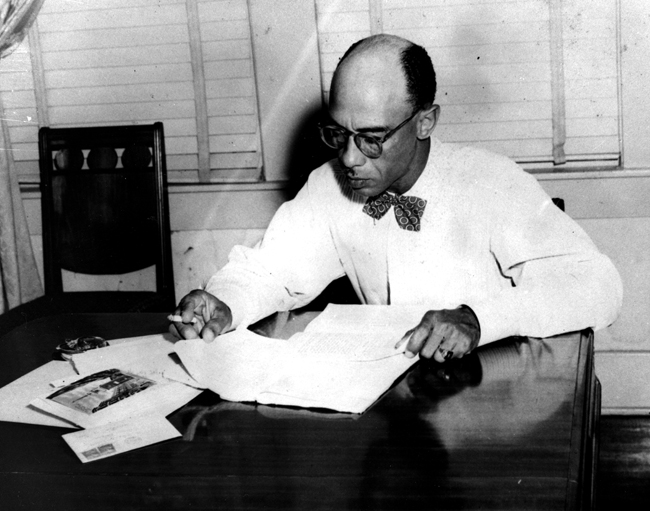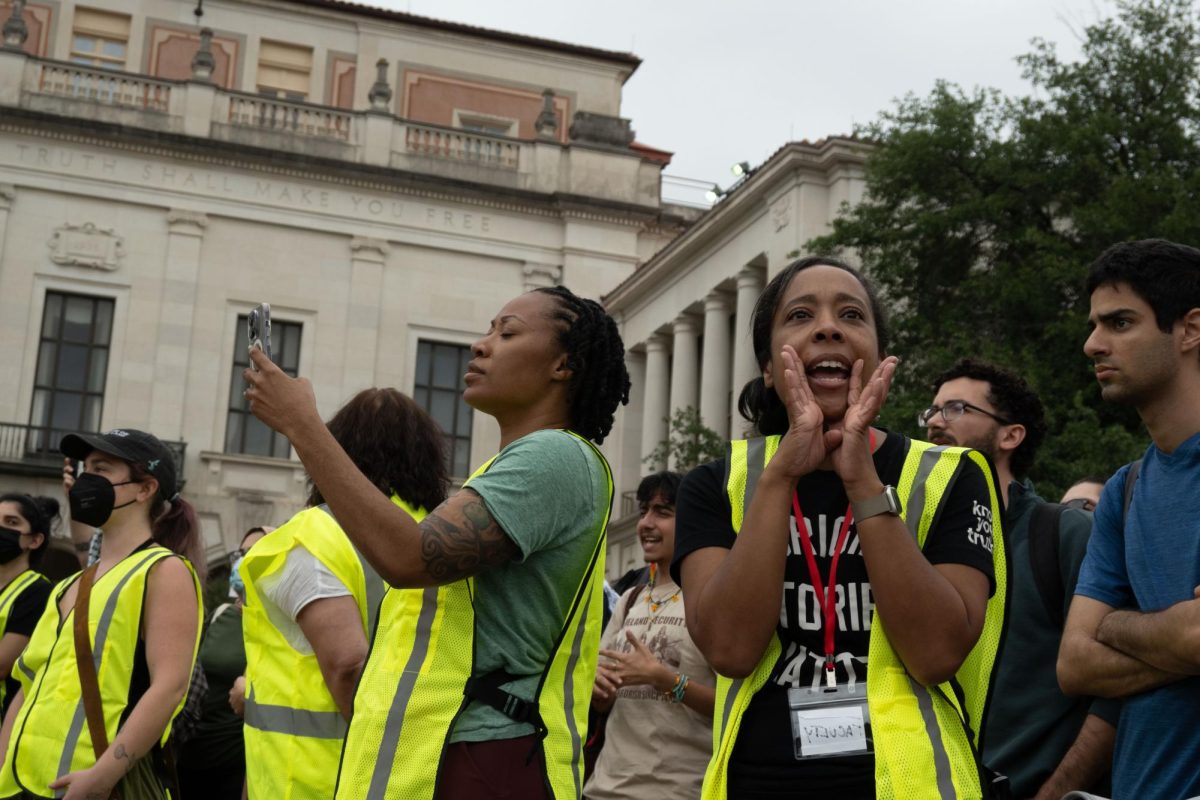In order to discover and address systemic problems facing men of color in higher education, the Heman Sweatt Symposium on Civil Rights continues the legacy of one famous African-American.
Students, faculty and staff will gather this evening at the 2012 Heman Marion Sweatt Legacy Award reception to honor the legacy of Heman Marion Sweatt, the first African-American admitted to the UT School of Law. The reception culminates the semester-long Heman Sweatt Symposium on Civil Rights, a program bringing faculty, scholars and community leaders together for numerous public discussions of contemporary racial issues.
The symposium, created by UT students 26 years ago, remembers the history, legacy and courage of Sweatt, said Deb Duval, executive director for external relations in the Division of Diversity and Community and Engagement. The two goals of the symposium are building awareness and creating an open dialogue about contemporary racial issues, she said. The focus of this year’s symposium is men of color in higher education, and numerous programs have been held this semester where speakers address contemporary issues of African-Americans, Hispanics, Native Americans and Asian-Americans, said Victor Saenz, College of Education assistant professor and Division of Diversity faculty fellow. The Latino Male Symposium will take place today before the award reception.
Duval said systemic problems that still exist must be overcome if men of color are to be successful.
“Many say we have made progress in race relations, but if you look at the data, one will see how few men of color are actually successful in higher education,” Duval said. “Long and deep-seated obstacles facing men of color need to be identified, and people need to be made aware of these obstacles so they can be fixed. There is still much work to be done.”
Saenz said he appreciates the University honoring Sweatt for the past 26 years, but in order to enact change, an ongoing discussion must continuously take place as a part of the curricular and pedagogical priorities of the University. These symposiums should not be isolated incidents, he said.
Office of admissions program manager Gary Lavergne wrote the award-winning novel “Before Brown: Heman Marion Sweatt, Thurgood Marshall and the Long Road To Justice.”
After being denied acceptance to UT based on his race, Sweatt sued the University in the famous Supreme Court case, Sweatt v. Painter and ultimately fostered a change spurring the legal end of segregation, Lavergne said.
Lavergne said he came close to not publishing his novel for fear of insulting readers sensitive to the issue of race. Everyone who gave him advice for his novel had differing views on how to refer to African-Americans, and this was just one example of the discouragement he experienced, he said.
“The most frustrating thing I encountered is that it’s almost impossible to purge emotion from a dialogue on race,” Lavergne said. “If we can’t figure out what to call each other, how are we ever going to live in harmony?”
Although Sweatt was not educationally separated from the rest of the UT students, he experienced the full range of treatment during his attendance at UT — from those who were kind to those who were bigots, Lavergne said.
“The biggest problem of racism in general is the subtleties,” he said. “It’s easy to deal with the obvious, blatant acts of racism, but the subtle racism is still prevalent in our society.”
Lavergne said the Sweatt family are very accomplished and successful people who appreciated their relative’s courage in enduring pain for the sake of justice.
Heman Sweatt’s nephew, James Sweatt, was 10 years old when Sweatt v. Painter went to the Supreme Court. He said his uncle faced many difficulties during the trial and while attending UT, but the number of African-Americans graduating from college significantly increased shortly after Heman Sweatt graduated.
“My uncle paid a tremendous price doing what he did,” he said. “His marriage broke up because of it, but I think all of his hardships were absolutely worth it. My uncle did an amazing thing for African-Americans.”
Printed on Friday, May 4, 2012 as: Sweatt symposium to continue legacy




















